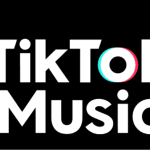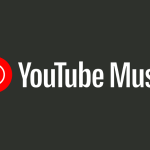TikTok has changed everything. Or almost. Over of a few years, the app has altered our consumption habits, enabled the emergence of an infinite number of influencers, and sparked as much controversy as fascination. In the world of music, although TikTok is not a traditional streaming platform, it has established itself as a key opportunity. More than the numbers, what interests us here is the creation itself. What’s TikTok’s impact on music streaming? We try to answer all of this in this new article!
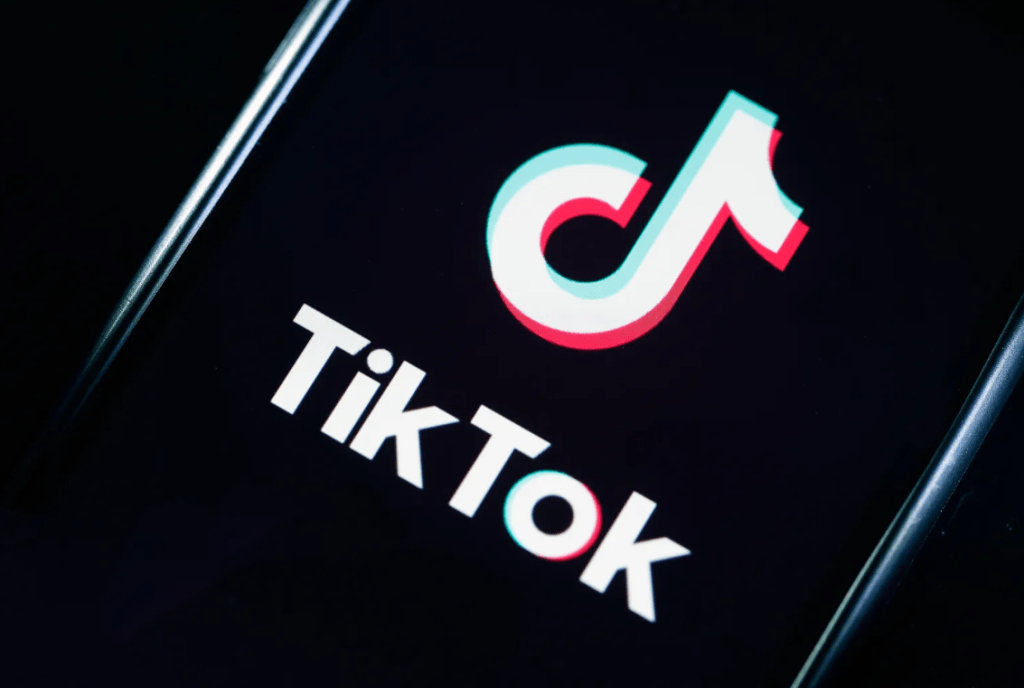
What’s TikTok’s impact on music streaming? A bit of history.
On TikTok, videos are king. That’s a fact. So are choreographies and dances. However, another dimension is at least as necessary: the songs a user chooses to create their content with. Music dictates everything.
Countless songs have achieved dazzling success on streaming platforms after a breakthrough on TikTok. Whether it’s Fleetwood Mac’s “Dreams,” a song from the seventies, or other hits from decades past, many songs have enjoyed a new lease of life thanks to a trend created on TikTok. On the other end of the spectrum, recent songs have also achieved dazzling success on streaming platforms after being widely distributed on social networks. The result? Millions of streams, skyrocketing notoriety, and soaring revenue.
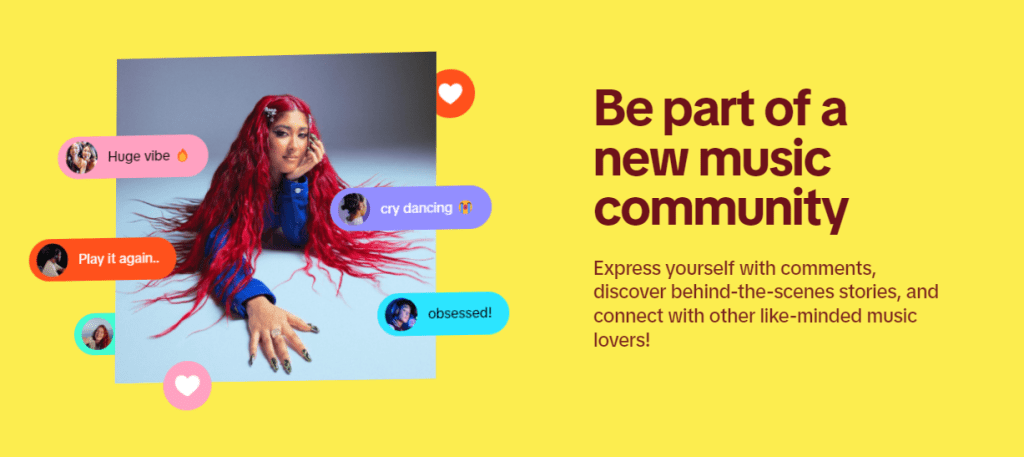
Numbers!
TikTok and Spotify, Apple Music, Deezer, YouTube Music, Amazon Music, and TIDAL are communicating. And the numbers show it: success on TikTok has a considerable influence on streams garnered on the main music streaming platforms. Numerous studies have been conducted in recent years, including a very recent one unveiled by TikTok—not sure it’s the most representative —highlight the fact that the vast majority of tracks, more than 80%, that made it into the rankings of the two hundred most-streamed songs in the United States, had achieved viral success on TikTok.
Other figures suggest that TikTok creates a virtuous circle: its users are more likely to subscribe to a paid music streaming service and purchase artist merchandise than someone who hasn’t installed TikTok. Could the social network be a creator of engagement, the lifeblood of recent years? Probably! Another interesting statistic: TikTok users are more likely than others to share their musical discoveries with their peers. In a context of increased competition between artists and labels, this cannot be ignored.
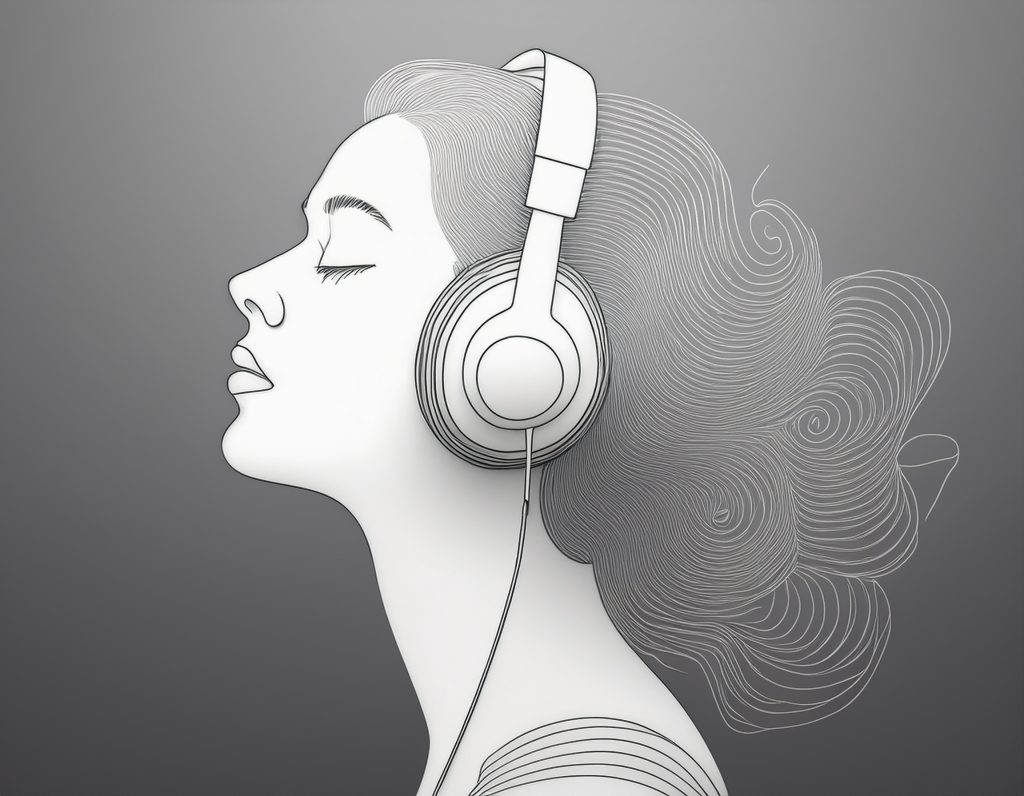
Armed with this data, TikTok even attempted a foray into the world of music streaming, trying to compete with traditional platforms on their own turf. Spoiler alert: it didn’t go well!
What’s TikTok’s impact on music streaming? The short-lived TikTok Music.
In 2024, TikTok shut down its music streaming app, TikTok Music. The service was supposed to compete with Spotify and disrupt the streaming world. If TikTok, such a widely used platform with such a large user base, managed to keep its users within its environment when they wanted to listen to music online, what impact could this move have had? Within the music industry, in a saturated market, people were trembling. But not for a long time. A few months after its launch, TikTok Music shut down at the end of November 2024. And TikTok refocused on its strengths. The reason? Officially, TikTok wanted to focus on one of its flagship features: the ability to add music from a TikTok video to the streaming platform of your choice, whether Spotify, Apple Music, YouTube Music, TIDAL, Deezer, or Amazon Music.

This option bridges the gap between TikTok and streaming platforms. A way to create a virtuous circle and, likely, generate financial benefits for TikTok. This is the real reason for TikTok Music’s shutdown. The app understood that fighting the streaming giants was pointless. It was better to join forces with them and preserve its DNA.
Industry professionals then continued to wonder: how to tame TikTok’s algorithm?
What’s TikTok’s impact on music streaming? Can its algorithm be controlled?
This is THE big question for industry professionals and a source of headaches for labels and their artists. How can you predict which songs will be successful? How can you successfully insert yourself into a famous Trend, a goldmine for labels and their artists? The answer is simple. It’s almost impossible to predict—the ‘beauty’ and appeal of the app lie in its unpredictability. Any song can go viral if a subscriber grabs it and decides to feature it in a video or choreography.
Many labels then try to invest in influencer campaigns. And millions of dollars are paid to them each year in the hopes that one of their videos will go viral. However, with TokTok, it’s not just the influencers who decide, but the average user as well. And they are impossible to target precisely. The mystery and unpredictability of TikTok’s algorithm keep the industry on its toes, constantly prompting the need for new strategies and solutions.

While it’s complicated to develop a strategy that guarantees success, it is, however, possible to foster success. This is the power of TikTok: a reflection of the significant changes it has brought about in the music world.
What’s TikTok’s impact on music streaming? Changing the way music is made.
In recent years, many labels have been encouraging artists to shorten the length of their songs. While they were often around four minutes long in the 1990s and 2000s, they are now commonly around two minutes long. These shorter formats mean shorter attention spans and a race for immediacy. In rap, the most popular musical genre in the world, according to statistics, we even talk about the “death of the third verse”, meaning songs now only have two verses instead of four, to reflect this shift in dynamics.
This headlong rush involves something else: the search for “moments.” Whether they’re choruses or catchy vocals designed to stay in your head, multiplying these moments within a song gives you hope that they’ll be picked up and go viral. TikTok has had a significant influence on the music created in recent years. With TikTok, you only have about ten seconds to get noticed.

So every one of them has to count. And you better not miss. In this context, we’re witnessing a standardization of musical creation, with formulas that are now identifiable to any listener as if certain hits fit a mold, to the point of creating a feeling of overdose.
This is another of TikTok’s excesses: making certain music interchangeable, transforming artists into hit machines and albums into successions of potentially viral songs without a clearly defined artistic identity. At the same time, labels are more inclined to sign artists who have achieved success on TikTok, as virality is now the only metric.
All of this creates a vicious circle that alters artistic creation and weakens the position of artists.
What’s TikTok’s impact on music streaming? Weakening the artists’ position.
The topic is on everyone’s lips: in a context where artist compensation on music streaming platforms continues to be a hot topic of debate, TikTok is playing the role of the worst student. While Spotify and its competitors are under fire for the low compensation they offer for each stream garnered, studies show that TikTok does even worse. A listen on TikTok earns almost nothing, and even if it allows for transfers to streaming platforms, it’s still not enough.

By making artists dependent on algorithms, offering them ever-lower compensation, and transforming them into hit machines forced to fit into a mold, hasn’t TikTok done more harm than good? While it’s still too early to empirically analyze TikTok’s profound impact over the past few years, there’s no doubt that the social network has helped launch careers, solidified others, allowed old hits to resurface, but also changed the rules of a game increasingly dependent on data and virality, to the point of creating an uncontrollable monster.
Does Soundiiz work with TikTok?
TikTok is not a music streaming platform. It is not compatible with our services. However, if you’ve added some of your favorite music discovered on TikTok to your streaming platform, Soundiiz becomes the ideal companion.
Our services allow you to manage your libraries and playlists directly from your homepage. Tired of Spotify? You can transfer everything to Apple Music or any other streaming platform. And by “everything,” we mean your playlists, tracks, likes, and artists. We create a mirror of your account on the service you’ve chosen, so you don’t lose anything you’ve spent a lot of time building.
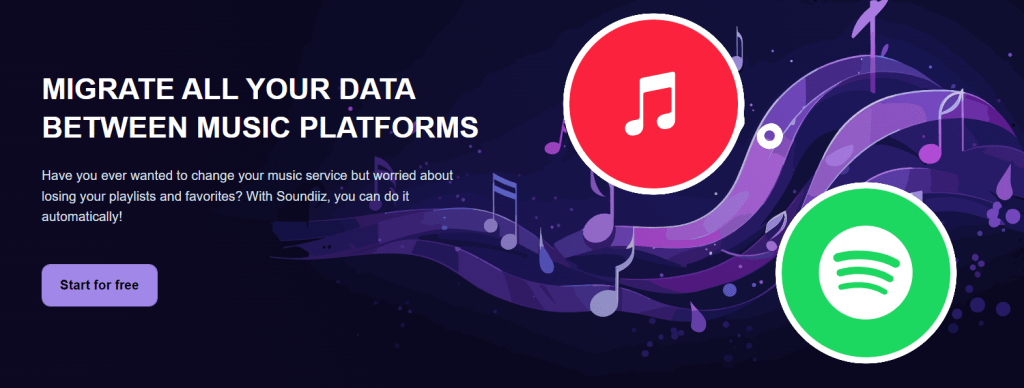
You can also synchronize playlists available on Spotify, for example, to your Deezer account at any frequency you choose without lifting a finger. Or download all your data in CSV format to store it somewhere and import it again. Among other things!
To test what Soundiiz has to offer, click here!


